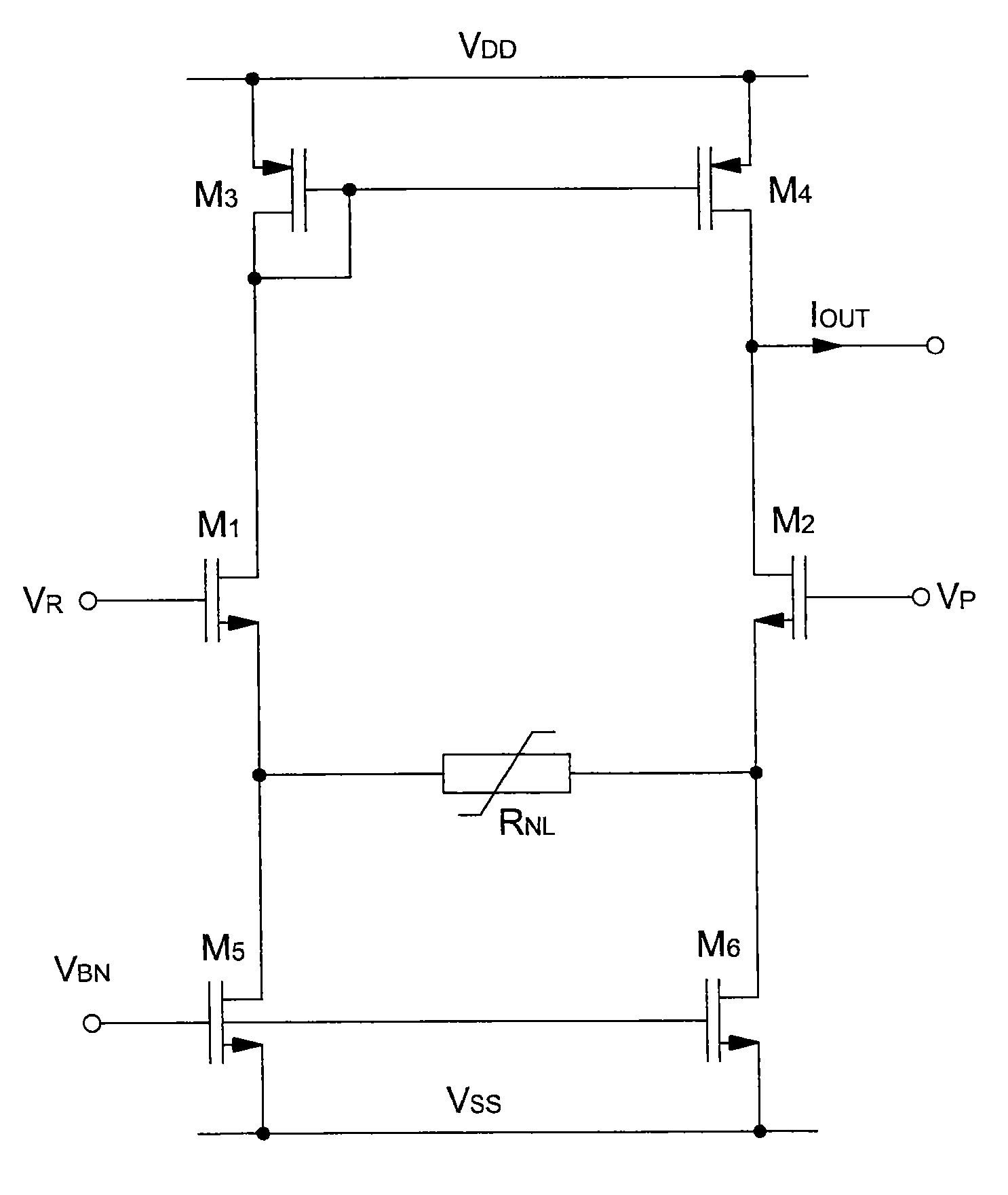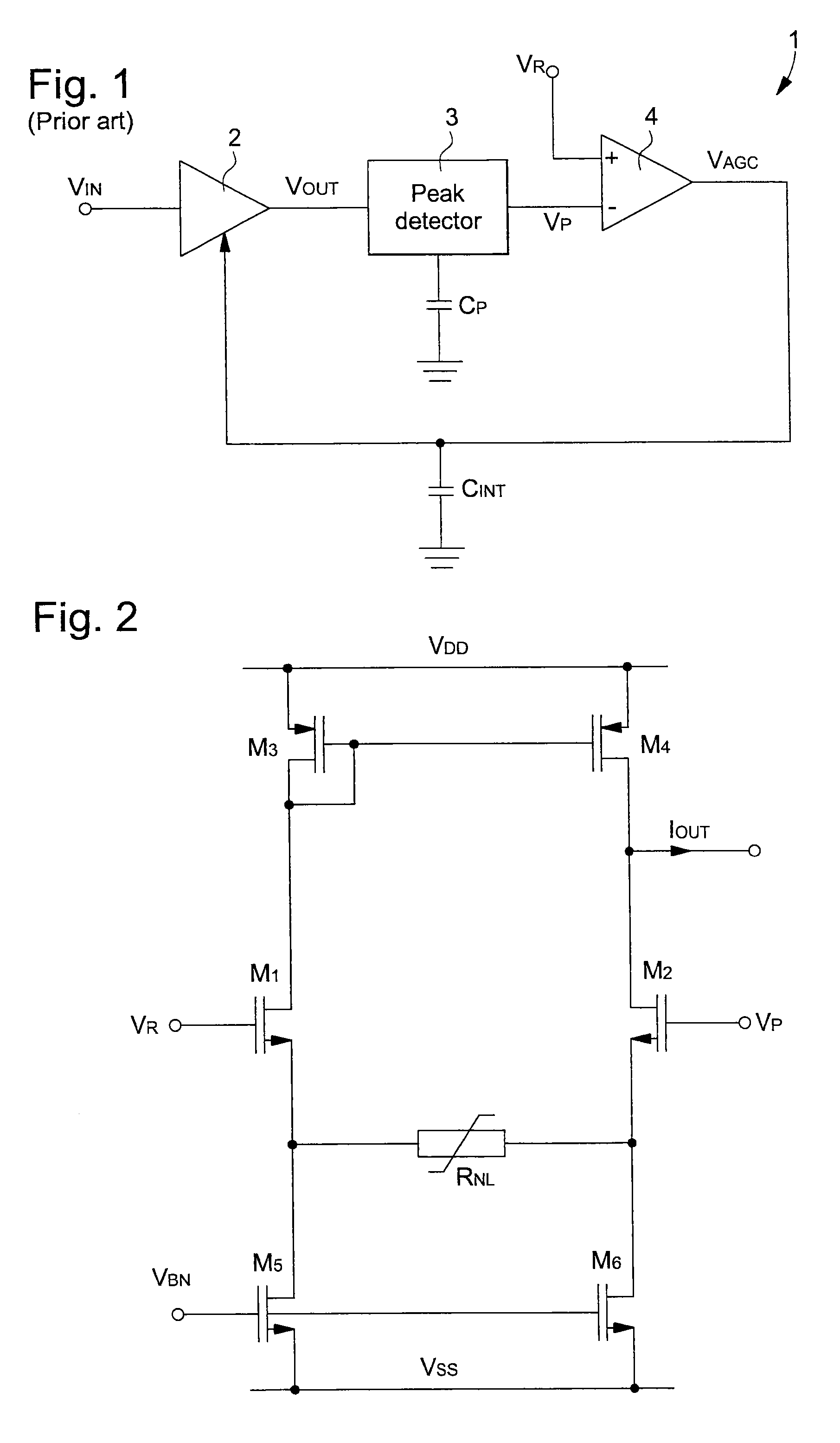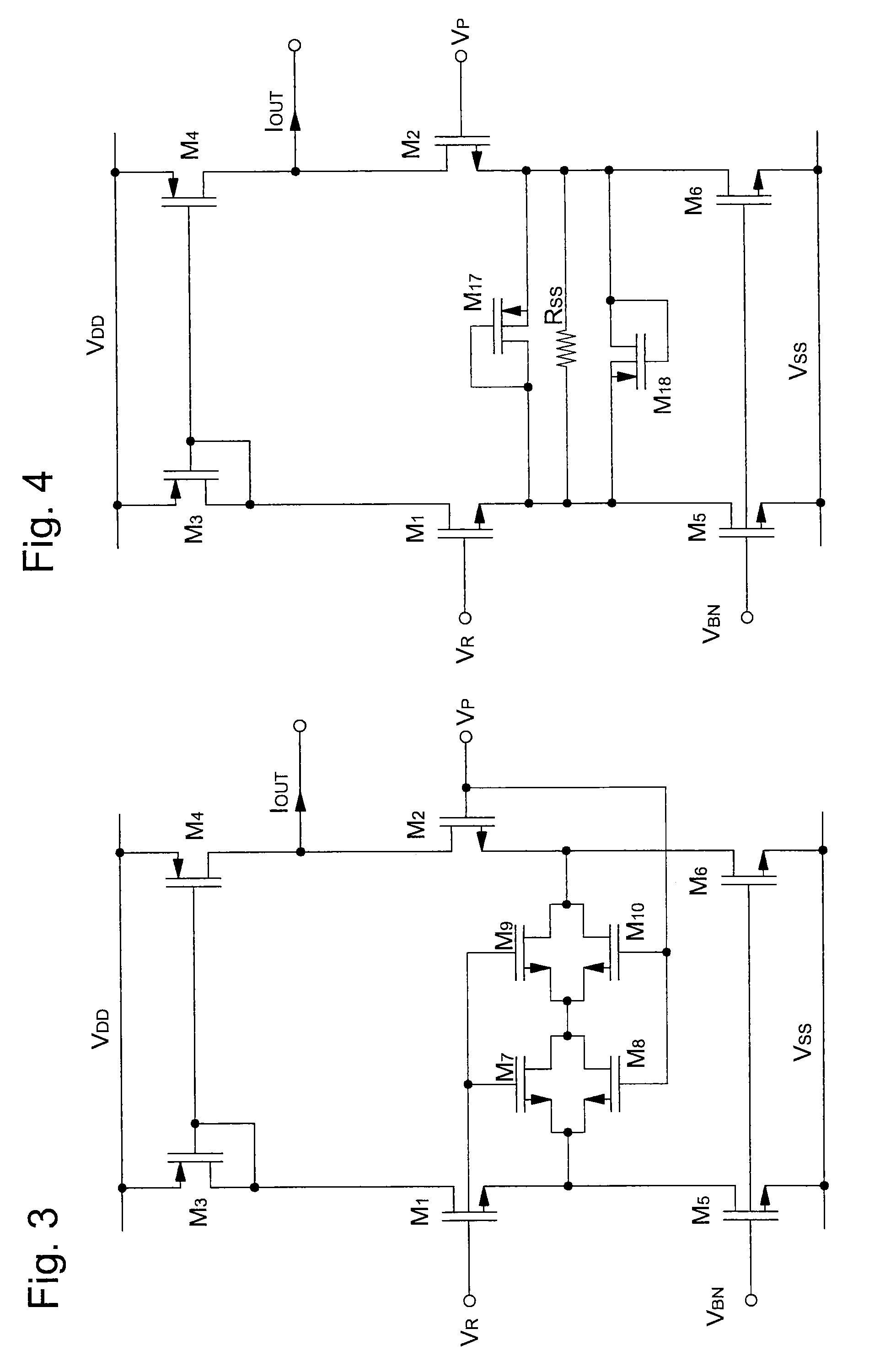Automatic gain control electronic circuit with dual slope for an amplifier
a gain control and automatic technology, applied in the field of electronic circuits, can solve the problems of many relatively complicated electronic components, low design efficiency, and inability to easily take into account the fast gain adaptation, so as to reduce the gain of the loop, accelerate the adaptation attack time, and speed up the setting time
- Summary
- Abstract
- Description
- Claims
- Application Information
AI Technical Summary
Benefits of technology
Problems solved by technology
Method used
Image
Examples
first embodiment
[0040]the non-linear transconductance element of the non-linear amplifier-comparator is shown in FIG. 3. It should be noted that those elements in FIG. 3 that are the same as those in FIG. 2 described above bear identical reference signs. Consequently, for the sake of simplification, the description of all these elements will not be repeated.
[0041]The non-linear transconductance element is formed of two pairs of transistors having a first type of conductivity M7, M8, M9 and M10 series-connected between the source or emitter of the first input transistor M1 and the source or emitter of the second input transistor M2. The sources or emitters of the two transistors M7 and M8 of the first pair are connected to the source or emitter of the first input transistor M1. The drains or collectors of the two transistors M7 and M8 of the first pair are connected to the sources or emitters of the two transistors M9 and M10 of the second pair. The drains or collectors of the two transistors M9 and...
second embodiment
[0046]the non-linear transconductance element of the non-linear amplifier-comparator is shown in FIG. 4. It should be noted that those elements in FIG. 4 which are the same as those in FIGS. 2 and 3 bear identical reference signs. Consequently, for the sake of simplification, the description of all these elements will not be repeated.
[0047]The non-linear transconductance element is formed of two diode-connected transistors M17 and M18 having a second type of conductivity and a resistance RSS all connected in parallel and connected to the sources or emitters of input transistors M1 and M2. The source or emitter of the first diode-connected transistor M17 is connected to the source or emitter of the second input transistor M2, while the gate or the base and the drain or the collector of the first diode-connected transistor M17 are connected to the source or emitter of the first input transistor M1. The source or emitter of the second diode-connected transistor M18 is connected to the ...
third embodiment
[0050]the non-linear transconductance element of the non-linear amplifier-comparator is shown in FIG. 5. It should be noted that those elements in FIG. 5 that are the same as those in FIGS. 2 to 4 bear identical reference signs. Consequently, for the sake of simplification, the description of all these elements will not be repeated.
[0051]The non-linear transconductance element is formed of a resistor RSS connected to the sources or emitters of input transistors M1 and M2, of a first adaptation transistor M13 having a first type of conductivity and of a second adaptation transistor M14 having a first type of conductivity. The source or emitter of the first transistor M13 is connected to the source or emitter of the first input transistor M1, while the drain or the collector of the first transistor M13 is connected to the drain or the collector of the second input transistor M2. The source or emitter of the second transistor M14 is connected to the source or emitter of the second inpu...
PUM
 Login to View More
Login to View More Abstract
Description
Claims
Application Information
 Login to View More
Login to View More - R&D
- Intellectual Property
- Life Sciences
- Materials
- Tech Scout
- Unparalleled Data Quality
- Higher Quality Content
- 60% Fewer Hallucinations
Browse by: Latest US Patents, China's latest patents, Technical Efficacy Thesaurus, Application Domain, Technology Topic, Popular Technical Reports.
© 2025 PatSnap. All rights reserved.Legal|Privacy policy|Modern Slavery Act Transparency Statement|Sitemap|About US| Contact US: help@patsnap.com



